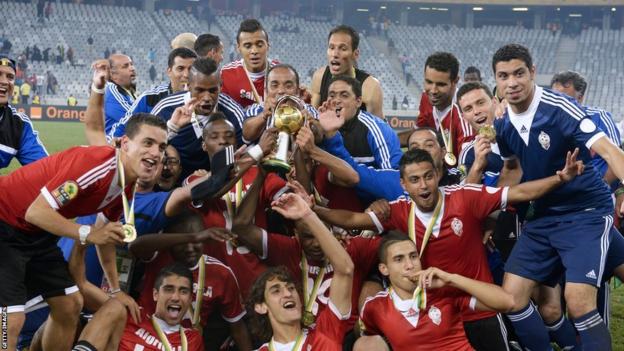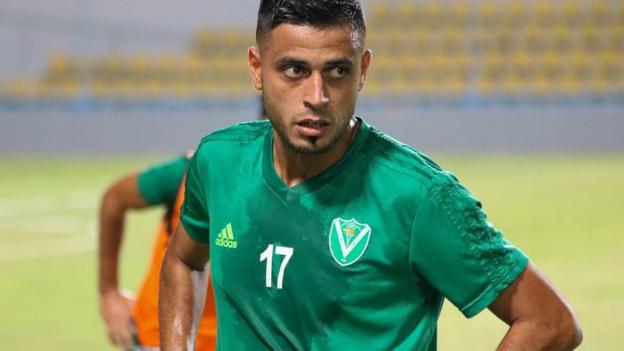
For many foreign coaches and players the idea of working in Libya is a thought they simply would not entertain given the country's security concerns.
However there are some who are willing to accept the challenge.
Belgian coach Ivan Minnaert was until recently in charge of Tripoli-based Al Ittihad and he insists working in Libya is not as bad as many people imagine.
"My life has not changed since I arrived in October 2018 - life in Tripoli city-centre is perfectly normal," he told BBC Sport shortly before his sacking on 2 September.
"Everybody knows that I was here up until Ramadan and that I came back without any issues. I have never been confronted with security problems.
"In my free moments I'm still able to go for a walk into town and drink a coffee.
"For me, working in Libya is sometimes easier than working in other countries I have worked in before.
"In the other countries you need to do nearly everything for yourself but here the only thing I need to think about is the work on the pitch.
"The big problems are when we are unable to play continuously as this affects the level of the team."
Under Minnaert Al Ittihad reached the second stage of Africa's second-tier club competition, the Confederation Cup.
They managed a 3-1 aggregate win over Niger's Gendarmerie Nationale, including a 2-0 victory in their 'home' tie played in Tunisia due to the Fifa ban on teams playing in Libya due to the security problems.
Despite the turbulent political and security situation every attempt is made to ensure that football continues as normally as possible.
Domestically the league is often interrupted and indeed this season was halted midway through the campaign but clubs continue to play in continental games and the national team is also still fulfilling its fixtures.
As well as Al Ittihad in the Confederation Cup, Benghazi-based Al Nasser progressed to the play-off round for qualification to the group stage of the Champions League.
Later this month Libya will take on neighbours Tunisia in qualifiers for the 2020 African Nations Championship (CHAN), the tournament for locally-based players only.
Libya have a good record in CHAN having won the title in 2014 in South Africa and then grabbing fourth place last year in Morocco.

Libya have continued to play football outside of the country, winning the 2014 African Nations Championship
After that, in November, the national team will begin its 2021 Africa Cup of Nations qualifiers with games against neighbours Tunisia and Tanzania.
The Libya Football Federation (LFF) is determined to do what it can to ensure the sport continues in the country in spite of the challenges it faces.
"The success of any work requires stability on all sides. It is true that we are going through turbulent circumstances, but one of the tasks is how to manage the crises facing us," said the LFF's general secretary, Abdunnaser Ahmed.
"We try in all aspects and in conjunction with the Confederation of African Football, as well as Fifa, to take part in everything that we can.
"Our motto is always that football fixes what has been corrupted by others and what helps us is the great love of this game by the Libyan people, and we try to be a source of happiness for them always."
Those sentiments are echoed by Motaz al-Mahdi, whose seven goals for Al Nasser saw him finish as the top scorer in the last edition of the Champions League, even though his side failed to make it to the group stage of the tournament.

Motaz al-Mahdi says football creates a distraction from the conflict in Libya
"It is true that the situation in Libya is very difficult, but the love of football is the incentive for us to play this game," he told BBC Sport.
"It creates a distraction from the turmoil our country is experiencing.
"The worst part is that the league does not continue regularly and we have to play outside Libya without the support of the public in our African matches and this is difficult.
"To achieve positive results we rely heavily on training camps outside Libya before our matches, especially when there is no league.
"I have played in Africa and enjoyed the atmospheres and for me denying Libya and its clubs the chance to play in its stadiums because of security conditions is a big problem and we need everyone's support to end the issue."